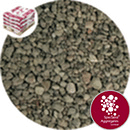-
Create With Colour
 Black & Grey
Black & Grey Blue
Blue Green
Green Multi Colour Packs
Multi Colour Packs Orange & Red
Orange & Red Pink
Pink Purple / Violet
Purple / Violet White / Crystal
White / Crystal Yellow & Amber
Yellow & Amber Earth Accents
Earth Accents Metallic Accents
Metallic Accents -
Create Naturally
 Large Rounded Boulders
Large Rounded Boulders Rounded Cobbles & Pebbles
Rounded Cobbles & Pebbles Large Angular Boulders
Large Angular Boulders Angular Chippings & Gravel
Angular Chippings & Gravel Rockery, Walling & Feature Stone
Rockery, Walling & Feature Stone World of Natural Sand
World of Natural Sand Yard Sale
Yard Sale Marine Accents
Marine Accents -
Technical Aggregates
 Anti Slip & Braking Sand
Anti Slip & Braking Sand Bentonite Clay
Bentonite Clay Gravel for Aquarium Substrate
Gravel for Aquarium Substrate Gravel for Resin Bound Surfacing
Gravel for Resin Bound Surfacing Professional Model Making
Professional Model Making Filter & pH Correction Media
Filter & pH Correction Media Kiln Dried Natural Aggregates
Kiln Dried Natural Aggregates Kiln Dried Natural Sands
Kiln Dried Natural Sands Light Weight Aggregates
Light Weight Aggregates Heavyweight Aggregates, Metals & Refractories
Heavyweight Aggregates, Metals & Refractories Pebble Dashing & Roofing
Pebble Dashing & Roofing Recreation, Sport & Leisure
Recreation, Sport & Leisure Glass - Terrazzo,Concrete & Resin Surfaces
Glass - Terrazzo,Concrete & Resin Surfaces UV Response, Glo in the Dark and Day Glo
UV Response, Glo in the Dark and Day Glo Specialist Concrete & Mortar Sand
Specialist Concrete & Mortar Sand



-
Full Product Range
Clay - SFX
Clay - Waterproofing Puddle
Crystal - Coloured
Crystal - Day Glo Coloured
Crystal - Silk Coloured
Glass & Granite - Memorial
Glass - Aggregates
Glass - Fire Pit & Coals
Glass - Stones, Pebbles & Nuggets
Glass Glitter
Glass Sand
Granite & Quartz - Chippings
Granite - Cobbles & Pebbles
Granite - Rockery & Boulders
Gravel - Aquarium Substrate
Gravel - Hobby Fish Tank
Gravel - Quartz
Gravel - Resin Bound
Lava Rock, Gravel & Sand
Lightweight - Argex® (Lytag Substitute)
Lightweight - Leca® LWA
Lightweight - Low Carbon
Lightweight - Ultralight Bubbles
Limestone - Calcium Carbonate
Limestone - Chippings
Limestone - Rockery
Marble - Chippings
Marble - Coloured Calico
Marble - White
Metals
Minerals
Pebble Dashing / Cladding
Pebbles - Coloured
Pebbles - Metallic Colour
Pebbles - Polished
Pumice
Sand - Block Paving / Jointing
Sand - Chroma
Sand - Coloured
Sand - Railway Braking
Sand - Recreation & Play
Sand - Silica
Sand - Staging & Promo - Natural
Sand - UV Response Tracer
Sand – Artificial Sports Turf
Scale Analogue / Simulant
Sea Shells - Coloured
Sea Shells - Crushed
Sea Shells - Whole
Slate - Rockery & Boulders
Yorkstone - Rockery & Boulders
-
Create With Colour
Original and Innovative decorative aggregates to colour your world Categories
Categories -
Create Naturally
Aggregates to enrich interior
and exterior spaces Categories
Categories -
Technical Aggregates
Aggregates with specific properties
or technical attributes Categories
Categories-
 Anti Slip & Braking Sand
Anti Slip & Braking Sand -
 Bentonite Clay
Bentonite Clay -
 Gravel for Aquarium Substrate
Gravel for Aquarium Substrate -
 Gravel for Resin Bound Surfacing
Gravel for Resin Bound Surfacing -
 Professional Model Making
Professional Model Making -
 Filter & pH Correction Media
Filter & pH Correction Media -
 Kiln Dried Natural Aggregates
Kiln Dried Natural Aggregates -
 Kiln Dried Natural Sands
Kiln Dried Natural Sands -
 Light Weight Aggregates
Light Weight Aggregates -
 Heavyweight Aggregates, Metals & Refractories
Heavyweight Aggregates, Metals & Refractories -
 Pebble Dashing & Roofing
Pebble Dashing & Roofing -
 Recreation, Sport & Leisure
Recreation, Sport & Leisure -
 Glass - Terrazzo,Concrete & Resin Surfaces
Glass - Terrazzo,Concrete & Resin Surfaces -
 UV Response, Glo in the Dark and Day Glo
UV Response, Glo in the Dark and Day Glo -
 Specialist Concrete & Mortar Sand
Specialist Concrete & Mortar Sand
-
-
Full Product Range
Specialist Aggregates
by material type Categories
Categories-
Clay - SFXBentonite clay aging dust for costumes, textiles and props in theatres and displays. Also special effect dust clouds for films specifically in pyrotechnic explosions and trailing dust following off-highway vehicles.
-
Clay - Waterproofing PuddleSodium Bentonite Clay. For the construction of natural ponds and streams, creating low permeability self-sealing barriers, grouting, and earthing pits for electrical conductors.
-
Crystal - ColouredPigmented crystal in cheerful vibrant colours. Use for set dressing, decorative topping to ornamental and foliage plants, value add merchandising and crafts.
-
Crystal - Day Glo ColouredPigmented crystal in vivid day-glo colours. Use for set dressing, decorative topping to ornamental and foliage plants, value addmerchandising and crafts.
-
Crystal - Silk ColouredPigmented crystal in crisp cool colours with a silk sheen. Use for set dressing, decorative topping to ornamental and foliage plants, value add merchandising and crafts.
-
Glass & Granite - MemorialTraditional memorial dressings in glass and natural granite. Generally two packs will adequately cover a single standard grave. For contemporary memorials see our Aspen and Glass Nugget ranges.
-
Glass - AggregatesUnrivalled colour palette of high specification crushed clear and opaque glass in a range of particle size. Use for resin and concrete bound terrazzo flooring, breathable lime based systems and loose decorative applications.
-
Glass - Fire Pit & CoalsRetro and contemporary glass aggregates for fire pits, gas and electric fires.
-
Glass - Stones, Pebbles & NuggetsThe widest range of coloured glass nuggets and beans available in trade quantities. Traditionally used in glassware, however, these products are long-term colourfast and easy to clean making them suitable for external installations and in aquariums.
-
Glass GlitterCrystal and mineral based non plastic glitter. Non electrostatic and non-combustible. Provide a decorative sparkle for event decoration, resin bound flooring and wet pour applications.
-
Glass SandUnrivalled colour palette of high specification crushed clear and opaque glass sand. Use for cement, Jesmonite® and resin bound systems
-
Granite & Quartz - ChippingsExtensive colour range of high quality crushed granite and quartz based chippings. Durability is the watch word. Use in concrete to achieve effective exposed concrete surfaces – or polish to acquire a hard wearing easy to maintain natural stone finish.
-
Granite - Cobbles & PebblesExtensive colour range of high quality natural granite cobbles and pebbles. Our most durable algal resistant stone collection - ideal for both internal and external water features, drainage for landscaping projects and decorative merchandising.
-
Granite - Rockery & BouldersRounded Granite Boulders for inventive play, Rocks and Boulders for vehicle restraint or features for creative landscaping - Specialist Aggregates stock a wide selection to cater for both commercial and private contracts.
-
Gravel - Aquarium SubstrateGravel - Aquarium Substrate
-
Gravel - Hobby Fish TankTriple washed, graded and kiln dried before being skilfully colour coated – we have manufactured our multi-coloured fish tank gravel in the UK for over 25 years.
-
Gravel - QuartzTop quality quartz gravels. Selected to achieve a broad range of properties included dried and close graded gravel for potable water filtration, clean gravels to extend resin and cement formulations, and durable gravel for garden design
-
Gravel - Resin BoundNatural, coloured and glass gravels for resin bound flooring and surfaces. Selected and blended to provide maximum workability during laying and superior stability within the cured surface.
-
Lava Rock, Gravel & SandBlack and terracotta lava rock specifically graded for BBQ’s,
feature planters and displays -
Lightweight - Argex® (Lytag Substitute)Strong but lightweight aggregate approximately 50% the weight of "normal" aggregate.
-
Lightweight - Leca® LWALightweight Expanded Clay Aggregate for green roofs, insulation and horticultural use.
-
Lightweight - Low CarbonOSTO® Carbon Negative Lightweight Aggregate.
-
Lightweight - Ultralight BubblesColoured Lightweight Expanded Clay Aggregate. Particularly suited to plant toppings and situations for instance, in shopping malls, hotel foyers and public buildings where full weight stones may be inappropriate but where aesthetics are important.
-
Limestone - Calcium CarbonateBiologically stable natural products to provide a high purity source of Calcium Carbonate (CaCO3). Use for pH correction and remineralisation in applications from high volume water management to hobby ponds.
-
Limestone - ChippingsLimestone chippings to create the perfect English Country garden. Mellow Cotswold and Derbyshire White Peak Limestone – timeless favourites
-
Limestone - RockeryLimestone rockery. When water worn the cavernous and contorted form is especially suited to aquaria and decorative displays. NO MARINE OR KARST LIMESTONE ENVIRONMENTS ARE DAMAGED AS A RESULT OF COLLECTING OUR ROCKS
-
Marble - ChippingsTimeless beauty – the coloured marbles of Rome and the shining white marble monuments of early Greek civilisation. Now available as crushed aggregates in a range of sizes for contemporary interior and exterior décor. Use for exposed concrete surfaces – or polish to achieve an easy to maintain natural stone finish.
-
Marble - Coloured CalicoMarble chippings with a colourful, waterproof matt finish. Ideal for interior, set and promo decor, creative play, table decoration and as a substrate for hobby aquaria.
-
Marble - WhiteThe enduring beauty of white marble – Think Mediterranean, and the shining building blocks of early Greek civilisation. Now available as rounded pebbles in a range of sizes for contemporary interior and exterior décor
-
MetalsAluminium cut-outs in a range of shapes for promotional décor and photographic assignments. Heavyweight steel punchings, applications include studio and set counterbalance, addition to concrete for machine counterbalance and resin bound for ship’s ballast.
-
MineralsSelect collection of minerals rarely offered in bulk on the internet.
Whilst all can be used as a decorative aggregates click on product icons to explore specific properties and application. -
Pebble Dashing / Cladding
-
Pebbles - ColouredRounded coloured pea gravel, created in the UK to an exclusive palette of bold colours. Perfect for event, set and promo decor, decorative plant topping and crafts.
-
Pebbles - Metallic ColourA sparkling range of Gold, Silver and Bronze metallic colours, particularly effective for festive and event decor
-
Pebbles - PolishedTriple A quality polished natural riverstones. Hand selected for size, smoothness and polish making them particularly suited for floristry, table decoration and photographic assignments.
-
PumiceLightweight Natural Pumice. Applications include use as a growing media where lightweight and moisture retention is of prime consideration. Set dressing, photographic assignments, and as a fragrance carrier in pot pouri mixes.
-
Sand - Block Paving / JointingWhy accept top quality paving products being finished with yellow or orange jointing sand? Kiln dried natural sands exclusive to Specialist aggregates to provide a professional finish to even the most aesthetically demanding application.
-
Sand - ChromaUnrivalled colour spectrum and quality in coloured sand. Manufactured in the UK using a pure white sand ensuring consistent sharp brights and delicate pastels. Obtainable Pantone® matched for product promotion and event décor.
-
Sand - ColouredTop quality colour consistent sand manufactured in the UK. Use for museum installations, photographic and film applications as well as sand art, layering sand craft and event décor.
-
Sand - Railway Braking10:18 Braking Sand for Railway Locomotive Sandboxes.
Product conforms to Rail Safety Standards Board BR600 and
Rail Group Standard GM/RT2461. Conveniently packed for direct
spill free application into sand boxes. -
Sand - Recreation & PlayColoured sand manufactured in the UK using organic pigment. River-worn sand specifically chosen and graded to ensure "gritty bits" and dust are removed, allowing our clients to use with confidence for pop-up urban recreation, art installations, and event staging.
-
Sand - SilicaTop quality silica sands. Selected to achieve a broad range of properties including dried and close graded sands for filtration, clean sands for resin and cement fillers and bright white sand for recreation and display.
-
Sand - Staging & Promo - NaturalNatural sands in a range of versatile colours and grain sizes for professional staging and event surfaces
-
Sand - UV Response Tracer
-
Sand – Artificial Sports TurfDesigned to provide optimal drainage and extended play life even in the most arduous conditions
-
Scale Analogue / SimulantAggregates to simulate or resemble something else. Supply challenges have included Lunar Regolith, Non- Combustible Coal and Dry Rain, for applications as diverse as university and industrial research, theatre productions and product promotions.
-
Sea Shells - ColouredCrushed cockle shells in a riot of waterproof colour. Exclusively manufactured in the UK by Specialist Aggregates using clean recycled shells. Suitable for arts, crafts, event and stage decor.
-
Sea Shells - CrushedSea shells recycled from licensed sources. Use to create seaside gardens and themed events, renovation of shell harling renders and as a natural bio filter media.
-
Sea Shells - WholeTop quality sea shells from licenced and regulated sources. Suitable for both interior and exterior seaside themed décor, education and promotional displays.
-
Slate - Rockery & BouldersRockery and feature boulders made from probably the finest slate in the world. Suitable for design led applications including walling, natural seating, recreational play, feature stones and property boundary markers.
-
Yorkstone - Rockery & BouldersYorkstone, to many the perfect material for building waterfalls and ponds, Rugged, yet alive with warm light and deep shade. Picture the Dales in summer, glimmering water and bright flowers scattered in crevices between the stones.
-
| Specialist Aggregates » Bentonite Clay » Individual Packs » Bentonite Clay - Granules | Log In | View Basket |
| About Us
Specialist Aggregates Ltd |
 About Us
About Us Delivery
Delivery Safety Information
Safety Information Terms and Conditions
Terms and Conditions Privacy Policy
Privacy Policy Press Guidelines
Press Guidelines Film Set Design
Film Set Design Bespoke Colouring
Bespoke Colouring Contract Packing
Contract Packing Research and Development
Research and Development Project Detailing
Project Detailing Public Sector Procurement
Public Sector Procurement Product Volume Guide
Product Volume Guide Product Reviews
Product Reviews Aggregate Wiki and Site Information
Aggregate Wiki and Site Information Helpdesk
Helpdesk



 Brexit Updates
Brexit Updates Product Size Guide
Product Size Guide






 Facebook
Facebook
 Twitter
Twitter